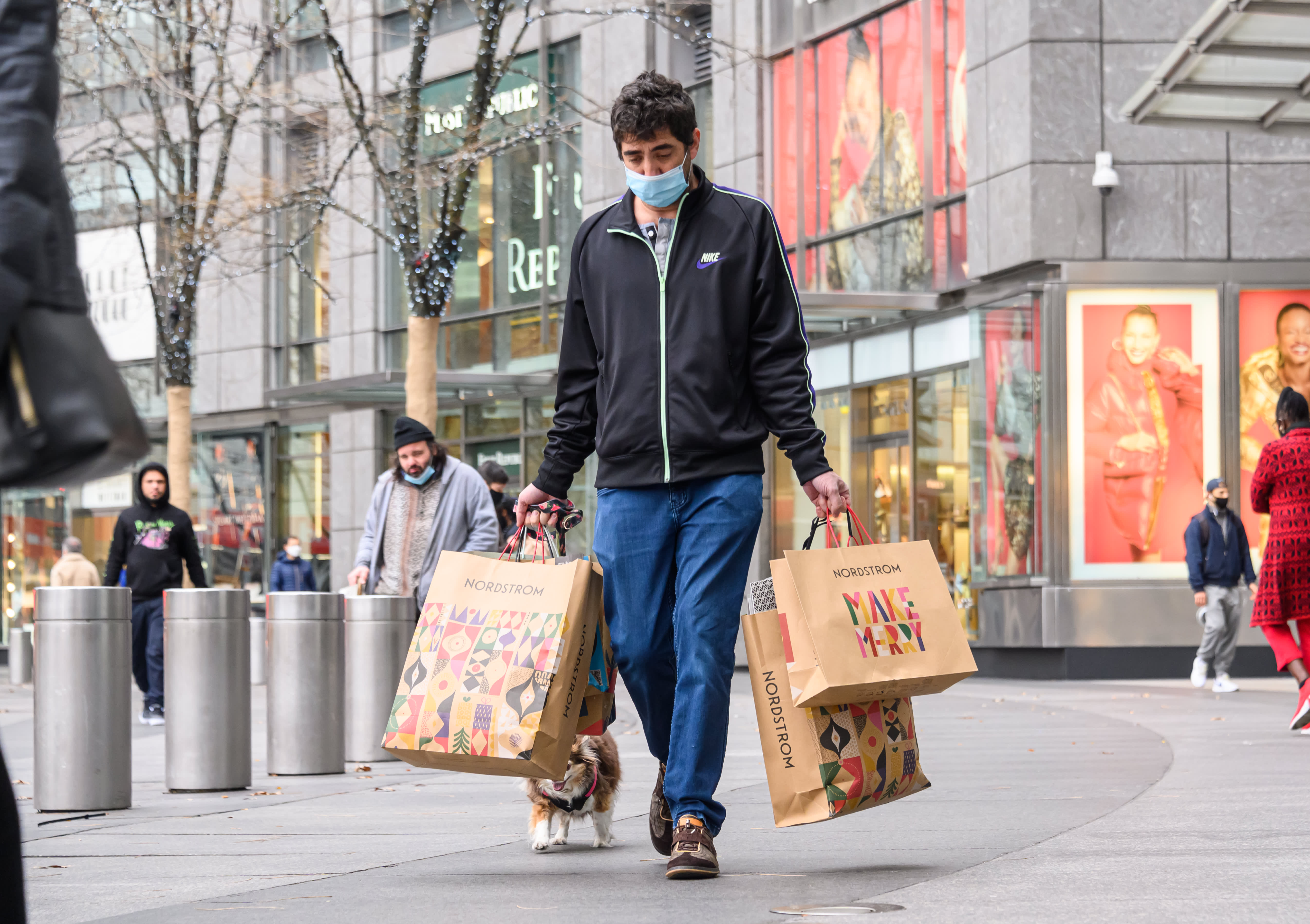A person wears a face mask while carrying shopping bags in Columbus Circle on November 28, 2020 in New York City.
Noam Galai | Getty Images
Fewer holiday shoppers bought gifts during the five-day holiday shopping period from Black Friday to Cyber Monday and those who did spent less as the sales season started early this year, according to the National Retail Federation.
The retail trade group said about 186.4 million holiday shoppers bought holiday gifts, food or decorations from Thanksgiving to Cyber Monday. That’s less than the 189.6 million shoppers who bought items during that period last year, but higher than the 165.8 million who shopped in 2018.
Average spending on gifts, decoration and food was $311.75 down about $50 from last year, the NRF said.
On a call with reporters, NRF Chief Executive and President Matt Shay said shoppers concentrated less of their shopping during the weekend since many began buying items in October. Yet he said Americans are still enthusiastic about celebrating the season and indicated that they have half of their shopping to finish.
This year, online shopping played a more important role for retailers during Black Friday weekend. NRF said about 57% of holiday shoppers indicated they plan to shop more online because of the pandemic.
That played out during Black Friday weekend, Shay said. The number of shoppers who bought items online only during the weekend increased by 44% to 95.7 million shoppers.
Even with the significant shift to online shopping this year, Shay said he expects crowds to return to stores for Black Friday in the future. He said Americans will have “enormous pent-up demand” to socialize and resume traditions after the Covid-19 vaccine.
“I wouldn’t be surprised if Black Friday next year was the biggest in history,” he said.
The NRF expects 2020 holiday sales to rise, as Americans spend less on travel and dining out and put that money toward gifts instead. It predicted that spending will increase by between 3.6% and 5.2% year over year, amounting to between $755.3 billion and $766.7 billion.
On average, holiday sales have risen by 3.5% for the past five years, according to the NRF. The sales forecast excludes car dealers, gas stations and restaurants. They increased 4% to $729.1 billion last year, NRF said.
Yet even the timing of the industry group’s forecast for this year illustrated uncertainty about how the pandemic and recession will influence consumer behavior. The NRF usually shares its holiday sales expectations in early October. This year, it delayed that outlook until late November.
This is a breaking news story. Please check back for updates.
